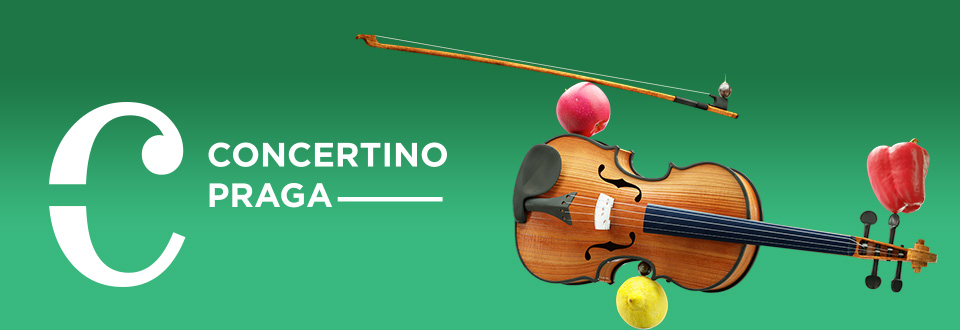Leonid Gorokhov to young musicians: Never lose patience
A member of this year´s jury and the 1982 Concertino Praga laureate Leonid Gorokhov was born in St. Petersburg, then Leningrad, and begun his cello studies at the age of seven.
His first cello teacher was S. Zagursky, from the age of 12 he joined the cello class of Prof. Anatoli Nikitin, where he stayed until graduating the Rimsky-Korsakov Conservatoire. He also took part in masterclasses of Daniil Shafran.
Winner of Concertino Praga (1982, First Prize) and Paris chamber music competition (Premier Grand Prix), Leonid Gorokhov is the only Russian cellist to be awarded the Grand Prix and the First Prize of the Geneva Concours. In 1995 the European Association for Encouragement of the Arts awarded the Cultural Achievement Prize to Leonid Gorokhov for “exceptional talent and outstanding artistic accomplishment”.
In 1991 Leonid Gorokhov appeared as soloist with the St. Petersburg Philharmonic conducted by Lord Menuhin, who took interest in the young cellist and invited him to join the Yehudi Menuhin School in the UK as a teacher. That also provided Leonid with chances to perform under Maestro Menuhin’s baton with many leading orchestras and to share a stage as a chamber music partner in Piano Trios and Beethoven Triple Concerto, which was enormously inspiring for a young musician.
Some of the highlights of this work were appearances with the Berlin Philharmonic Orchestra, St Petersburg Philharmonic, The Royal Philharmonic as well as other British, Russian, Swiss, Scandinavian orchestras with a range of repertoire, from Haydn, Schumann, Tchaikovsky and Dvorak to Walton and Lutoslawsky.
Leonid returns regularly to Russia to perform a range of repertoire, most recently in Moscow with the Russian premiere of Sonata Notturna by Nicholas Maw under Evgeny Bushkov as conductor and as a soloist and chamber musician with Musica Viva, a chamber orchestra conducted by Alexander Rudin. His passion is chamber music where the main interest is to involve younger musicians alongside more prominent and experienced partners. The other passion is teaching. Leonid is a Professor at the Hochschule Für Musik, Theater und Medien in Hannover, Germany, since 2008.
How and when did you first hear of Concertino Praga?
Almost since I remember myself. I then took part in it in 1982.
What is the biggest benefit for young musicians when participating in a music
competition?
Preparing a great programme and meeting highly motivated peers.
What do you think about the competitions for young musicians in general? Are the
performances objectively measurable?
It all depends on the motivation of the jurors. If we are to serve music and its future, I
believe the results are positive; to be objective in all parameters is almost impossible in
our profession.
What criteria did you use to choose the best recordings?
Sincerity and passionate musicianship, alongside instrumental finesse.
Was it an easy decision to choose this year’s winners, or did you vacillate between
the candidates?
It always differs. Sometimes it is very obvious, but one tries to be objective and take the opinion of others into account.
Did you have an opportunity to listen to the laureates live at the concerts in Prague and South Bohemia?
Unfortunately, I have not heard the concerts yet and I am looking forward to an opportunity to listen to the recordings.
What kind of music do you personally prefer?
One that requires a great skill of using an instrument or voice.
What would you tell the laureates, do you have a piece of good advice for young
musicians in the beginning of their professional career?
Never lose patience and be true to the profession and audience.




